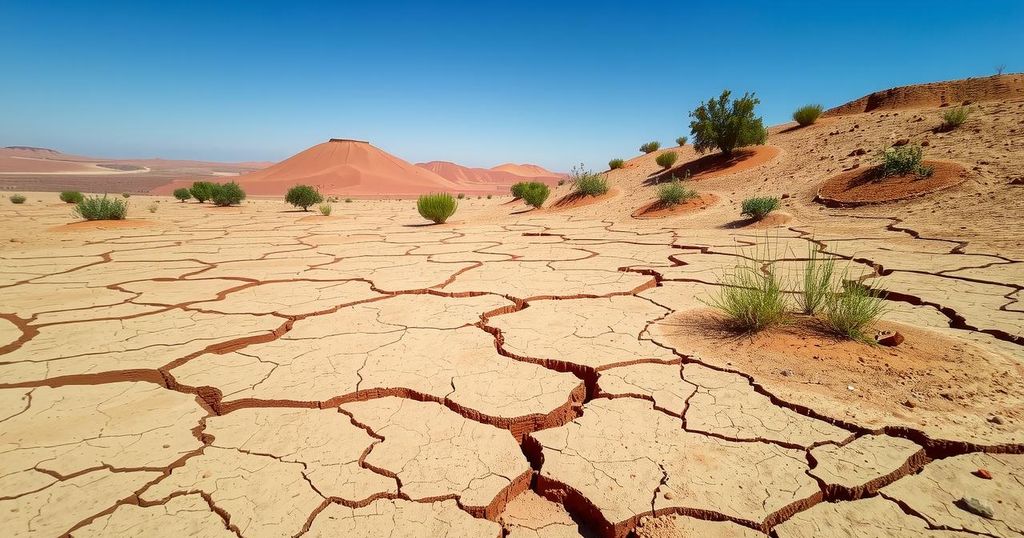Experts Warn: Recent Rainfall in Morocco Does Not Resolve Water Crisis

Recent heavy rains in Morocco have improved dam filling rates from 26% to 35% but have not resolved the ongoing water crisis, which is deeply rooted in the country’s history. Experts urge caution, emphasizing the need for sustainable water management and effective policies to prevent future shortages despite recent precipitation.
In Morocco, recent heavy rains have somewhat alleviated a prolonged drought affecting the nation for seven years. Official statistics indicate that dam filling levels have risen from 26% last year to approximately 35% presently, providing some immediate relief regarding water scarcity. However, this improvement remains far below the 68% recorded in 2018, underscoring the severity of Morocco’s ongoing water crisis, particularly in central and southern regions.
Experts, including Mohammed-Said Karrouk from Hassan II University, caution against assuming that this rainfall resolves long-standing issues. Karrouk highlights that droughts are a historical reality for Morocco and criticizes superficial governmental responses that fail to address structural water management challenges. He points out that despite technological advancements in dam construction, Morocco struggles with effective water management, resulting in unfulfilled potential even amidst improved dam capacities in rain-privileged regions.
Abdelhakim El Filali, a water and environmental expert, echoes Karrouk’s sentiments, noting that the country’s water crisis transcends current rainfall patterns. He observes that while the recent rains enhance dam reserves, they do not compensate for the extensive deficits in underground aquifers and ongoing water scarcity. El Filali emphasizes the need for sustainable consumption practices and a reevaluation of agricultural policies to mitigate the crisis.
El Filali also draws attention to the problematic increase in water resource consumption in Morocco, which continues alongside agricultural export surges despite experiencing severe drought. He asserts that urgent measures must be undertaken, including conservation efforts and enforcing existing water laws to prevent future crises. Moreover, he criticizes delays in infrastructure projects, suggesting timely implementations could have alleviated the severe water stress experienced in recent years.
Both experts advocate for a long-term and sustainable approach toward water management, emphasizing that Morocco must accept its climatic identity of alternating droughts and floods. El Filali’s call to integrate responsibility and accountability into national water and agricultural policies is vital for addressing the foundational issues of water resource sustainability in Morocco.
In summary, despite recent rainfall providing temporary relief to Morocco’s water crisis, experts warn that significant challenges remain. Historical and climatic factors dictate a need for sustainable water management practices. Both Mohammed-Said Karrouk and Abdelhakim El Filali emphasize the contradictions within current policies and the urgent requirement for reform to ensure long-term stability. The lessons from the past should guide Morocco towards effective management strategies to balance water usage with conservation efforts in the face of inevitable climatic variability.
Original Source: www.moroccoworldnews.com






